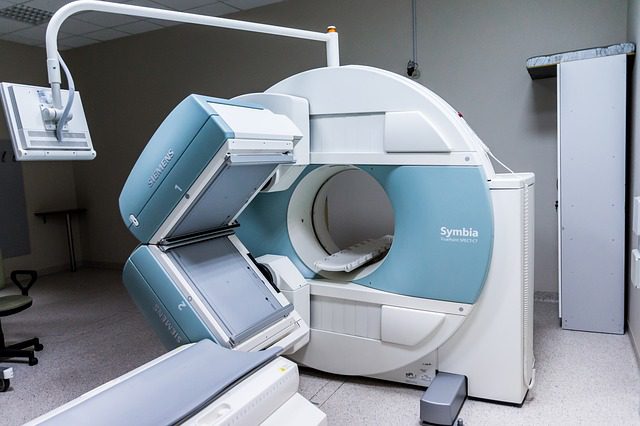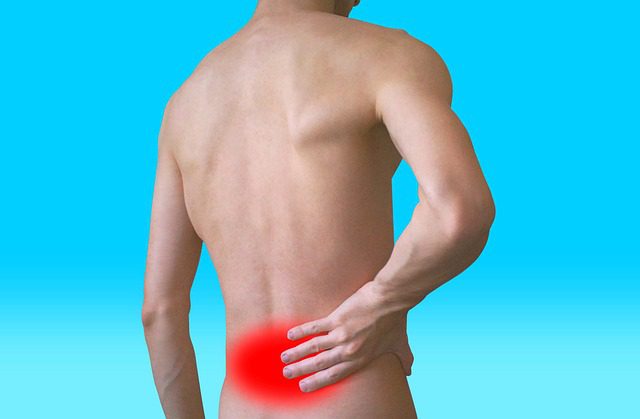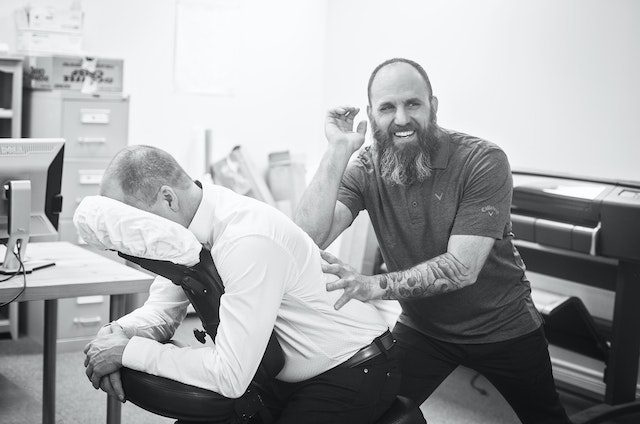

Can A Chiropractor Diagnose Herniated Discs?
Herniated discs, also called slipped or ruptured discs, occur when the soft, gel-like center of a spinal disc protrudes through a tear in the disc's outer ring. As a result, the nerves in your spine may become pinched, leading to tingling, numbness, and even weakness in your limbs.
Discs between the vertebrae of the spine can rupture, causing pain and discomfort. These discs have a tough outer shell and a softer interior.
A herniated disc can be so painful that the patient is unable to do even the simplest of tasks. In other cases, a herniated disc may not cause any symptoms, so the person may be completely unaware that they have the condition.
Can a chiropractor diagnose herniated discs? Herniated discs are a common musculoskeletal issue that can be diagnosed and treated by chiropractors. This article will examine chiropractic care for herniated discs, including its effectiveness in diagnosing the condition and treating patients, as well as its potential drawbacks.
Diagnosis Process

Physical examination
The purpose of a chiropractic examination is to measure the patient's mobility, muscle strength, and reflexes. It's possible that they'll use X-rays or an MRI to get a good look at the spine, too.
Imaging diagnostics help rule out other potential causes, confirm a diagnosis, and pinpoint the exact location of the herniated disc.
Symptom evaluation
The patient will be asked to describe their pain in detail, as well as any other symptoms they are experiencing, such as tingling or numbness in the extremities, for the chiropractor to analyze.
The chiropractor will need to know how severe the injury is and how it affects the patient's daily life in order to treat them properly.
Symptoms of Herniated Discs

A herniated disc can occur from doing something as commonplace as sitting on the couch and watching television. When a disk is misaligned, it can exert undue stress on nearby nerves, leading to excruciating discomfort.
It's likely that you'll experience the following symptoms if a herniated disc is the problem:
- Pain in a certain area along the spine (often the lower region right above the hips) pain that spreads to the buttocks, thighs, and sometimes the calves
- Feeling pain that becomes worse when you move and better when you rest
- Pain that is made worse by coughing, sneezing, or taking particular poses
- Getting older (discs are more likely to break down)
Disc problems including a herniated disc, bulging disc, or ruptured disc are usually easy for a doctor to diagnose with a physical exam alone.
Visiting a chiropractor in Phoenix, Arizona, can help you figure out what's causing your back discomfort and what can be done about it.
If the chiropractor suspects that the pain is being caused by something other than the spine, they may order imaging tests like an X-ray to rule out the possibility.
Can a Chiropractor Diagnose a Herniated Disc?

Herniated discs are common, and chiropractors are well-versed in recognizing the symptoms and determining the cause. Chiropractic examinations are standard procedure at the first visit to a chiropractor.
Both the area around the herniated disc and the entire spine will be examined. Since herniated discs are a symptom of a larger issue, it is important to get chiropractic care even if you don't think you have back pain.
If a chiropractor has reason to suspect a herniated disc, they will also check your reflexes. Reflexes will not normally respond if the nerves are not transmitting the proper signals. This is a symptom of a herniated disc. Chiropractors also check for the wasting of muscle tissue and other signs of strength decline.
A chiropractor will also pay attention to where the pain is coming from and how severe it is. The affected nerve and disc can then be pinpointed with this information. If a chiropractor is unable to locate the source of the problem through palpation alone, they may recommend imaging tests such as an X-ray or MRI.
Can a Chiropractor Treat a Herniated Disc?
Herniated discs can be helped with chiropractic therapy.
- The first step in many treatments is spinal manipulation. The chiropractor will use this hands-on approach to gently move the disc back into place.
- It's possible to hear a crackling or popping noise. Very normal, nothing to worry about. The sound is caused by gas being expelled during the rotation of the discs. Like cracking your knuckles, only better, and it shouldn't hurt.
The effects of chiropractic treatment on the spine are not always gradual. Since the treatment relies on gradual, gentle movements, it may take a few sessions before the disc slides back to its normal position, alleviating the patient's pain.
When you visit a chiropractor, they may suggest a series of exercises to assist in easing your discomfort. To alleviate pressure on the nerve caused by a herniated disc, try performing a pelvic blocking exercise. Soft wedges are positioned beneath both the left and right sides of the pelvis using this method.
This is only one form of exercise that chiropractors may suggest; there are many more that can be beneficial.
Chiropractic Treatment for Herniated Discs

Treatment for a herniated disc can be expedited with the use of exercises and spinal manipulation.
You should know that a chiropractor is your best bet if you suspect you have a herniated disc. Even while chiropractic care is helpful for herniated discs, not all patients are ideal candidates for spinal manipulation.
Patients who have experienced severe regional weakness or loss of sensation or who are having trouble with their reflexes may not find relief through chiropractic care. Surgery is the sole option for treating herniated discs in the most difficult situations.
Although they do not themselves perform surgical procedures, chiropractors will gladly refer you to an appropriate medical specialist if they believe you require such attention.
Spinal manipulation
Spinal manipulation is a common chiropractic treatment used to realign the spine and alleviate pain. Misalignment of the vertebrae can be corrected by delivering a controlled force to the back, which, in turn, can relieve pressure on the nerves and alleviate discomfort.
Rehabilitation exercises
A chiropractor may also advise their patient on a regimen of targeted physical therapy to assist them in increasing their spinal stability, muscle strength, and flexibility. The patient's range of motion will improve, and the likelihood of future herniated discs will decrease with the help of these exercises.
Other modalities
To relieve pain and inflammation, chiropractors may also employ the use of ultrasonography, electrical stimulation, or hot/cold therapy. The goal of employing such modalities is to speed up the recovery process and lessen the patient's discomfort.
Advantages of Chiropractic Care for Herniated Discs

Non-invasive: When it comes to treatment, chiropractic care is a great alternative since it does not require any intrusive procedures or pharmaceuticals.
Drug-free: Patients who are looking for a drug-free treatment option or who cannot use drugs owing to other health issues may find relief through chiropractic treatments.
Addresses the root cause: Instead of just masking the symptoms, chiropractic care seeks to get to the root of the problem, in this case, a herniated disc. Chiropractic care can help prevent future herniated discs by realigning the spine and strengthening the muscles that support it.
Potential Risks of Chiropractic Care for Herniated Discs
- There is a very small chance of serious adverse events, such as a stroke or a worsening of a herniated disc, occurring during chiropractic care.
- In rare cases, patients may have little discomfort following spinal manipulation, although this normally goes away after a day or two.
- Patients with osteoporosis or other illnesses where spinal manipulation can cause harm should talk to their doctor before making an appointment at a chiropractic clinic.
What Should I Do at Home for a Herniated Disc?
In spite of our best efforts, there may be times when you need medication to get you to a place where you can better care for yourself. In these cases, we recommend starting with over-the-counter remedies.
- If possible, begin with ibuprofen (Advil, Motrin IB, and others) to minimize swelling. Taking ibuprofen alongside other medications like paracetamol or codeine is fine. However, you shouldn't mix ibuprofen with other NSAIDs like aspirin or naproxen without first seeing your doctor or pharmacist.
- If not, try alternating heat and cold for 10–15 minutes to ease muscle tension, increase circulation, and decrease inflammation.
- To ease muscle tension, apply a topical analgesic such as Icey Hot or Tiger Balm after using heat and ice.
- Avoid over-recovering or under-recovering; doing neither will result in stiffness and increased muscular weakness.
- To alleviate the discomfort in your back, you should not twist or strain the damaged area
As you get ready for your consultation, it may be helpful if you can recall when you first noticed symptoms and what you think may have triggered them. You should think about whether there are any positions, activities, or situations that alleviate the discomfort. If you are using any sort of medication or vitamin, your chiropractor will want to know about it.
Conclusion
Herniated discs have a potential treatment option in chiropractic therapy, which is a drug-free and non-invasive approach to treating the condition and relieving pain.
Herniated discs can be diagnosed by a chiropractor who has had extensive training in the field and treated in a number of different ways (including through physical examination, diagnostic imaging, and manual therapy). They can help prevent further herniated discs from developing while also relieving pain and addressing the underlying source of the disease.
However, before obtaining chiropractic care, patients should check with both a chiropractor and their physician to make sure it is the best course of treatment for them.
Do You Think You Have a Herniated Disc? Call a Chiropractor
Undiagnosed herniated discs can cause significant pain. Those who have suffered from the pain of a herniated disc in Phoenix, Arizona, should seek out a local chiropractor for treatment.
Our medical staff at Atlas Pain Specialists is dedicated to helping you feel better and return to optimal health. We're available for consultations to learn more about your condition and explore treatment options.
To contact us, please either call (602) 492-9821 or use the online form provided. If possible, this suffering should end immediately. To learn more about the ways in which we can assist you, please get in touch with us today.
The discomfort of a sore back can be both annoying and debilitating. You can alleviate pain by figuring out what's causing it and then fixing it. Pain medications or surgical "quick fixes" are common recommendations from medical professionals (without really going over the invasive procedure and the risks involved). Chiropractic treatments should be considered before giving up or immediately resorting to drastic measures.
About Dr. Sean Ormond



